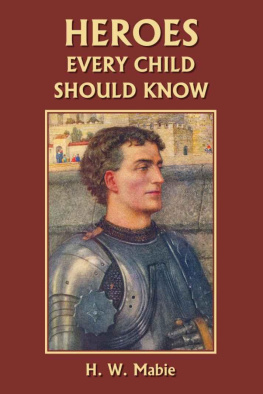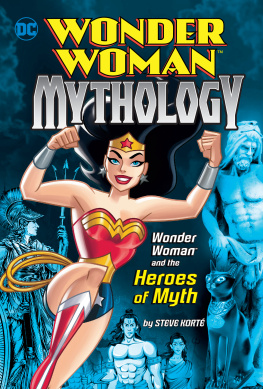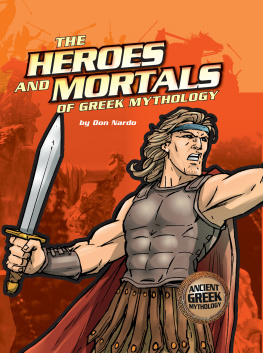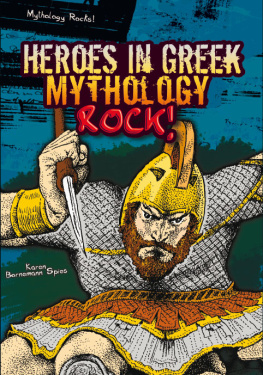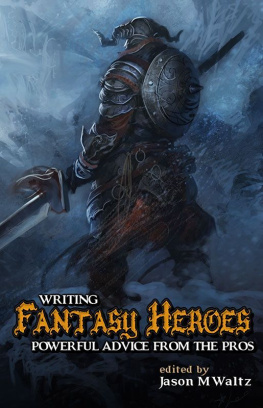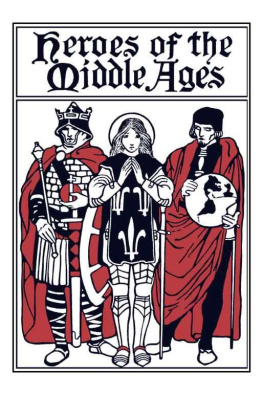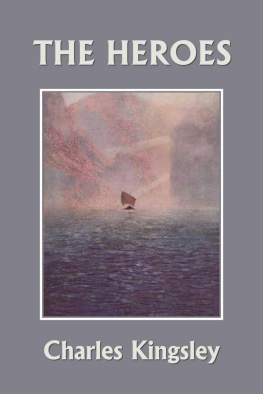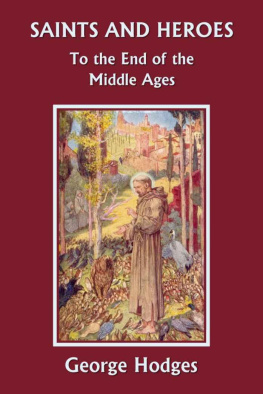Heroes Every Child Should Know
by
H. W. Mabie
Yesterday's Classics
Chapel Hill, North Carolina
Cover and Arrangement 2010 Yesterday's Classics, LLC
All rights reserved. No part of this book may be reproduced or retransmitted in any form or by any means without the written permission of the publisher.
This edition, first published in 2010 by Yesterday's Classics, an imprint of Yesterday's Classics, LLC, is an unabridged republication of the work originally published by Doubleday, Page & Co. in 1906. This title is available in a print edition (ISBN 978-1-59915-097-0).
Yesterday's Classics, LLC
PO Box 3418
Chapel Hill, NC 27515
Yesterday's Classics
Yesterday's Classics republishes classic books for children from the golden age of children's literature, the era from 1880 to 1920. Many of our titles are offered in high-quality paperback editions, with text cast in modern easy-to-read type for today's readers. The illustrations from the original volumes are included except in those few cases where the quality of the original images is too low to make their reproduction feasible. Unless specified otherwise, color illustrations in the original volumes are rendered in black and white in our print editions.
Introductory Note
TO
"HEROES EVERY CHILD SHOULD KNOW"
The endeavour has been made in this volume to bring together the heroic men of different races, periods and types; and in the selection of material the most attractive, intelligent and authoritative literature has been drawn upon. In cases in which the material selected belongs distinctively to the best literature, no changes have been made, although narratives have been abbreviated; in cases in which the material has a historical rather than a distinctively literary quality, the text has been treated for "substance of doctrine," and omissions have been freely made, and connecting words, phrases and even sentences have been introduced to give the narrative clear connection and completeness. In the preparation of the material for the volume the intelligence and skill of Miss Kate Stephens have been so freely used that she is entitled to the fullest recognition as associate editor.
INTRODUCTION
TO
"HEROES EVERY CHILD SHOULD KNOW"
If there had been no real heroes there would have been created imaginary ones, for men cannot live without them. The hero is just as necessary as the farmer, the sailor, the carpenter and the doctor; society could not get on without him. There have been a great many different kinds of heroes, for in every age and among every people the hero has stood for the qualities that were most admired and sought after by the bravest and best; and all ages and peoples have imagined or produced heroes as inevitably as they have made ploughs for turning the soil or ships for getting through the water or weapons with which to fight their enemies. To be some kind of a hero has been the ambition of spirited boys from the beginning of history; and if you want to know what the men and women of a country care for most, you must study their heroes. To the boy the hero stands for the highest success: to the grown man and woman he stands for the deepest and richest life.
Men have always worked with their hands, but they have never been content with that kind of work; they have looked up from the fields and watched the sun and stars; they have cut wood for their fires in the forest, but they have noticed the life which goes on among the trees and they have heard the mysterious sounds which often fill the air in the remotest places. From the beginning men have not only used their hands but their intellect and their imagination; they have had to work or starve, but they have seen the world, thought about it and dreamed about it.
They had worked and thought and dreamed only a little time before they began to explain the marvelous earth on which they found themselves and the strange things that happened in it; the vastness and beauty of the fields, woods, sky and sea, the force of the wind, the coming and going of the day and night, the warmth of summer when everything grew, and the cold of winter when everything died, the rush of the storm and the terrible brightness of the lightning. They had no idea of what we call law or force; they could not think of anything being moved or any noise being made unless there was some one like themselves to move things and make sounds; and so they made stories of gods and giants and heroes and nymphs and fawns; and the myths, which are poetic explanations of the world and of the life of men in it, came into being.
But they did not stop with these great matters; they began to tell stories about themselves and the things they wanted to do and the kind of life they wanted to lead. They wanted ease, power, wealth, happiness, freedom; so they created genii, built palaces, made magic carpets which carried them to the ends of the earth and horses with wings which bore them through the air, peopled the woods and fields with friendly, frolicsome or mischievous little people, who made fires for them if they were friendly, or milked cows, overturned bowls, broke dishes and played all kinds of antics and made all sorts of trouble if they were mischievous or unfriendly. Beside the great myths, like wild flowers in the shade of great trees, there sprang up among the people of almost all countries a host of poetic, satirical, humorous or homely stories of fairies, genii, trolls, giants, dwarfs, imps, and queer creatures of all kinds; so that to the children of two hundred years ago the woods, the fields, the solitary and quiet places everywhere, were full of folk who kept out of sight, but who had a great deal to do with the fortunes and fates of men and women.
From very early times great honor was paid to courage and strength; qualities which won success and impressed the imagination in primitive not less than in highly developed societies. The first heroes were gods or demi-gods, or men of immense strength who did difficult things. When men first began to live in the world they were in constant peril and faced hardships of every kind; and from the start they had very hard work to do. There were fields to be cultivated, houses to be built, woods to be explored, beasts to be killed and other beasts to be tamed and set to work. There were many things to be done and no tools to work with; there were great storms to be faced and no houses for protection; there was terrible cold and no fire or clothing; there were diseases and no medicine; there were perils on land, in the water and in the air, and no knowledge of the ways of meeting them.
At the very start courage and strength were necessary if life was to be preserved and men were to live together in safety and with comfort. When a strong man appeared he helped his fellows to make themselves more at ease in the world. Sometimes he did this by simply making himself more comfortable and thus showing others how to do it; sometimes he did it by working for his fellows. No matter how selfish a man may be, if he does any real work in the world he works not only for himself but for others. In this way a selfish man like Napoleon does the work of a hero without meaning to do it: for the world is so made that no capable man or woman can be entirely selfish, no matter how hard they try to get and keep everything for themselves.
It was not long before men saw that strong men could not work for themselves without working for others, and there came in very early the idea of service as part of the idea of heroism, and the demi-gods, who were among the earliest heroes, were servants as well as masters. Hercules, the most powerful of the heroes to Greek and Roman boys was set to do the most difficult things not for himself but for others. He destroyed lions, hydras, wild boars, birds with brazen beaks and wings, mad bulls, many-headed monsters, horses which fed on human flesh, dragons, he mastered the three-headed dog Cerberus, he tore asunder the rocks at the Strait of Gibraltar which bear his name to open a channel between the Mediterranean and the Atlantic. He fought the Centaur and brought back Alcestis, the wife of Admetus, from the pale regions of death where she had gone to save her husband's life. In all these labors, which were so great that works of extraordinary magnitude have since been called Herculean, the brave, patient, suffering hero, was helping other people rather than helping himself.

